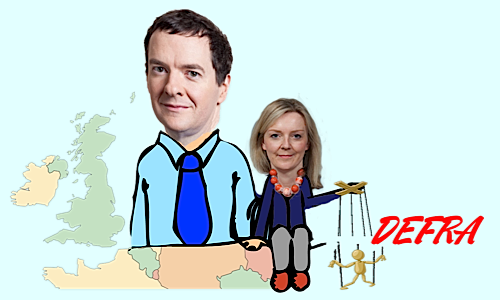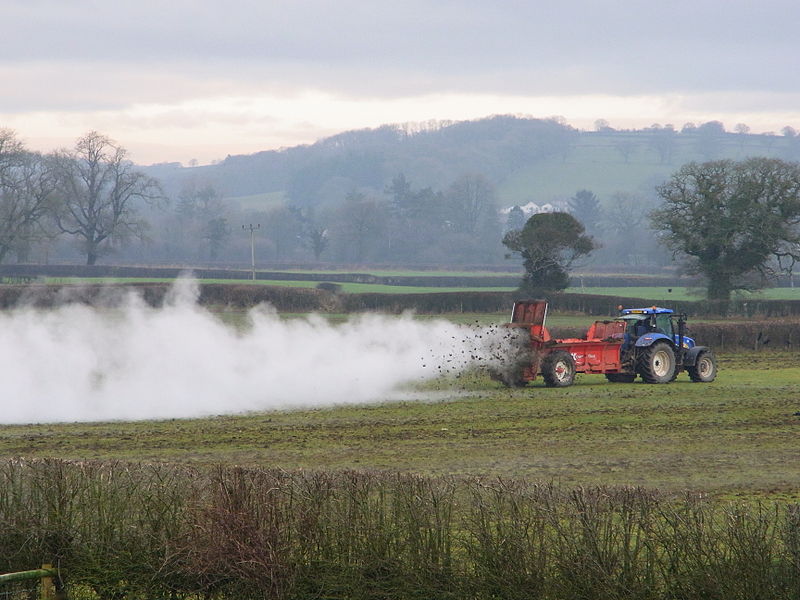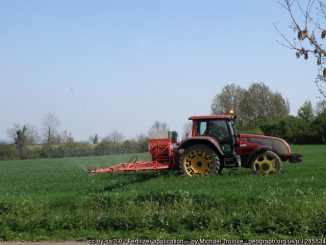
In the bizarre world of ideologically-driven Tory self-harm, DEFRA is cutting itself into oblivion. With almost wanton glee, the Osborne-Truss tag team is lining up to slice away ever more of the very functionality of the UK’s food, rural and environment ministry.
The knock-on effects of successive rounds of heavy green budget cuts in the UK add up to cumulative cuts of 57% since 2009, habitat NGOs are warning. The UK government this week lined up agriculture and environment ministry DEFRA for average annual budget cuts of 8% over the next four years to meet the Chancellor’s 30% austerity target.
The UK government is announcing the details of future cuts on November 25, following hard on the heels of successive cuts since 2009, which RSPB economists have been analysing. “The Westminster Government is keen to talk about “difficult choices” but it seems increasingly clear that abandoning its obligation to ensure the UK is habitable is not very difficult for them at all,” warns RSPB chief executive Dr Mike Clarke.
What’s most troubling about this whole sorry episode is the fact that those at the helm – including in particular the Minister Liz Truss herself- seem driven by a fervor to reduce the relevance of their own organisation. Like her predecessor, the “green blob” hater himself Owen Patterson, Truss believes that an impactful Department would problematic: it would be a potential hindrance to agri-business profits. Thus, these zealots sow salt in the soil of their own parts of government, leaving pollutors and profiteers free reign to do as they please with little oversight, or, heavens forbid, inspection.
“Five years ago DEFRA was at the front of the queue and took the joint largest cuts while other departments were still negotiating. When once again DEFRA is heavily cut ahead of other departments, talk of “difficult choices” is hard to take seriously.” The kind of difficult choice facing DEFRA staff is how to hack 80% off 2009 funding levels for wildlife conservation, air quality and water pollution if flood risk and animal and plant disease are to be protected.

Sources suggest heavy job losses ahead at DEFRA: the RSPB and the Wildlife Trust are predicting more than 5,000 redundancies, which are likely to impact wildlife preservation or making legal commitments to cleaning up rivers, lakes and drinking water as well as weakening the regulation of air quality.
“This seems to us to be a truly perverse decision. A lack of resource is already damaging the UK Government’s ability to meet basic statutory obligations. These obligations aren’t ‘nice to haves’ – a healthy natural environment underpins our prosperity. Investing in environmental protection is an essential part of any plan for a better future,” Clarke fumes.
Sixty percent of the UK’s wildlife is in steady decline, while the UK Government struggles to meet basic statutory targets for protecting special protected areas according to the NGOs. “When everything we depend on comes from the natural world this makes no sense for the economy and it makes no sense for the health and wellbeing of our society,” explains the Wildlife Trust director, England, Stephen Trotter.
“The UK has been running up a massive environmental deficit over recent decades and which future generations will have to pay off. These cuts are a false economy and will undermine and jeopardise the future growth and development of the economy. I fear this is a missed opportunity for Government to start paying off the environmental debt that we’re leaving to our children and grand children,” he told journalists.
“Even before yesterday’s announcement, the Government was only investing a tiny proportion of our national income in environmental stewardship and the restoration of wildlife habitats — it is already far below the levels that we need. It will now be reduced to such low levels that there are real question marks over whether the Government can continue to deliver its most basic functions and responsibilities for the natural environment.”
Trotter queries the competence of government decision makers to judge the environmental impact of their policies. “We are now faced with the extremely worrying prospect that Government no longer has the ecological literacy or functionality that society needs if we are to build a genuinely sustainable future.”
More
Toothless Environment Agency is allowing the living world to be wrecked with impunity (November 2015 UK Guardian)





